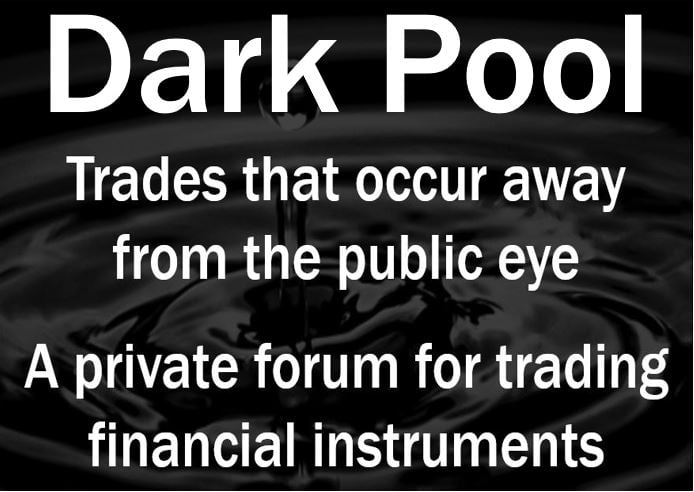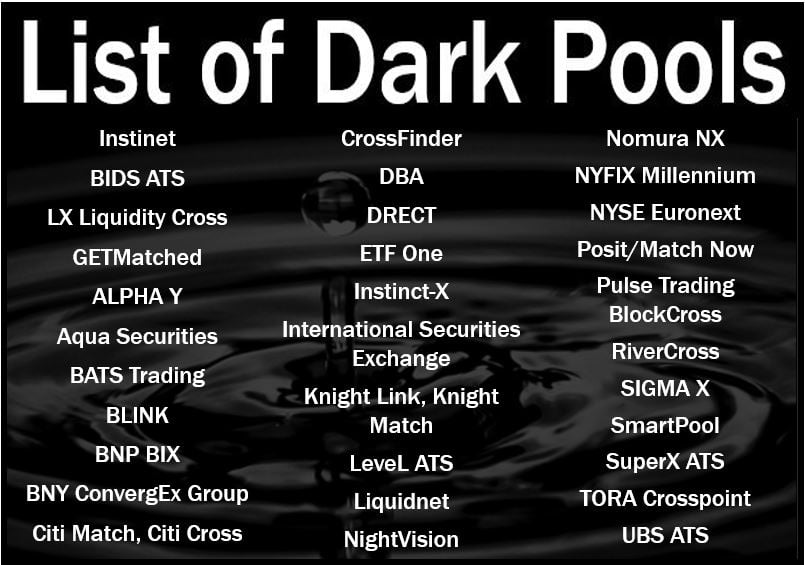Dark pool is a term we use to describe trades that occur in the dark and away from the public eye. Unlike normal security exchanges, traders in dark pools do not operate through a public stock exchange. For example, NASDAQ, the New York Stock Exchange, or the London Stock Exchange are public stock exchanges.
We also use the terms ‘upstairs market‘ or ‘dark liquidity‘ when talking about dark pools. We call them ‘dark’ because traders reveal the price only after the completion of the whole trade.
Dark pool activity is widespread across the world. In fact, about one-eighth of the US stock market’s volume consists of dark pool activity.
Dark pool prevents market reactions
Large financial institutions that want to trade anonymously use dark pools. They do not want to cause a major shake in the market. Large institutions do this because they do not want to undermine their selling price.
By trading large amounts of securities without the whole market knowing, there is no market reaction to the transaction(s).

Dark pools keep us in the dark
However, surely there must be some disadvantages to trading in the dark? The answer is ‘Yes.’
Dark pools keep individual investors unaware of what is happening in the market.
For example, when pension funds sell billions of dollars worth of stock without people knowing, the market is no longer transparent. This defeats the whole point of having public stock exchanges.
Many people say that dark pool liquidity should be available for the public to see. We would thus make sure that we were maintaining a fair trading environment.
According to ft.com/lexicon.com:
“In dark pools, pre-trade prices – the price at which shares are offered for sale – are not visible to anyone, even the participants in them, and the price at which shares change hands is only revealed after the trade is done.”
Are dark pools common?
According to an MIT study, dark pools are becoming more common in stock trading. In fact, researchers found that they currently account for around one-eighth of all US stock trading volume.
Experts believe volumes are also high in Europe.
In fact, most economists worry about this huge chunk of hidden activity. A survey found that 71% of finance professionals consider dark pools to be ‘somewhat’ or ‘very’ problematic in setting stock prices.
However, Haoxiang Zhu, from the MIT Sloan School of Management, sees benefits in dark pool activity. In some cases, they can even help price discovery, Zhy believes.
According to Zhu:
“The dark pool is like a screening device that siphons off uninformed traders. In the end, on the exchange, you get left with a higher concentration of the informed traders who contribute to price discovery.”

